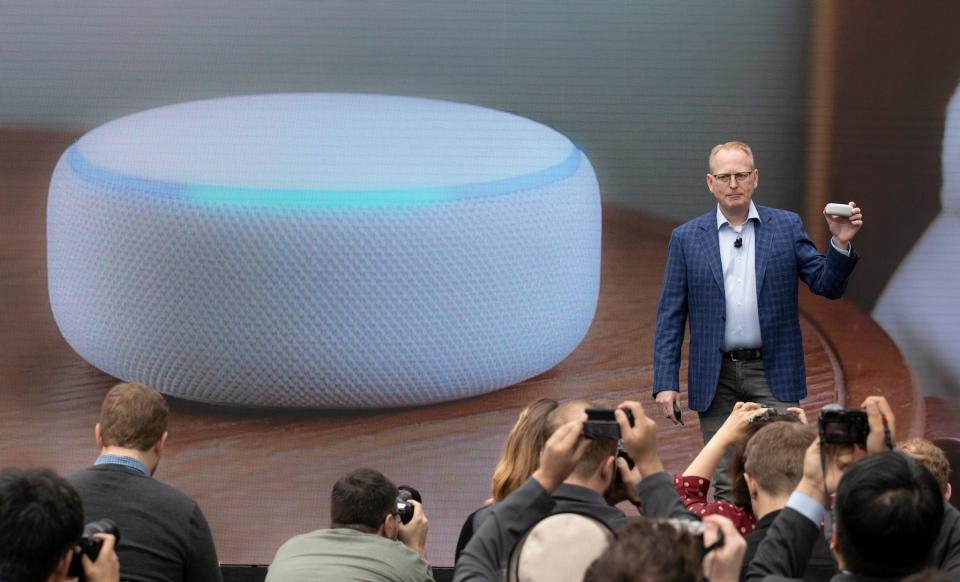Amazon finally gives Alexa a masculine-sounding voice

Amazon has quietly added a masculine-sounding voice to Alexa.
The voice assistant’s feminine speech is in contrast to competitors from both Google and Apple, which each offer the option to choose different voices. It has led to concern over the gendered implications for offering the voice assistant with only a feminine-sounding voice.
Now the company has finally added a masculine-sounding voice, which appears to be called “Ziggy”. The change came amid a more loudly announced change that added voices such as Shaquille O’Neal, and was first spotted by The Ambient.
Users can switch to the new voice by saying “change your voice” to their Echo device. It appears not to be saved across a users’ account but instead be associated with each individual Echo, meaning that it will have to be changed across a house.
It can also be set by using the Alexa app.
In addition to the new voice, users can also wake the assistant up by saying the word “Ziggy”, alongside the existing and most obvious “Alexa”, and “Computer”, “Amazon” and “Echo”. The new wakeword is not explicitly associated with the new voice, but arrived at the same time.
In fact, Amazon refers to the two different voices as “Original” and “New” in its app. Both Google and Apple use generic and non-gendered names for the new voices, with Apple using numbers and Google referring to them by colours.
Amazon has long discouraged the use of “she” or “her” in relation to Alexa, and the voice assistant itself refuses to give itself a gender, though its support documents do still use female pronouns.
The change comes soon after Apple announced that it would stop defaulting to a “male” or “female” voice for Siri, a decision it said it had taken as part of a concern that choosing the gender of a users’ voice could be a problem for inclusion.
“This is a continuation of Apple’s long-standing commitment to diversity and inclusion, and products and services that are designed to better reflect the diversity of the world we live in,” the company said at the time.

 Yahoo Finance
Yahoo Finance 